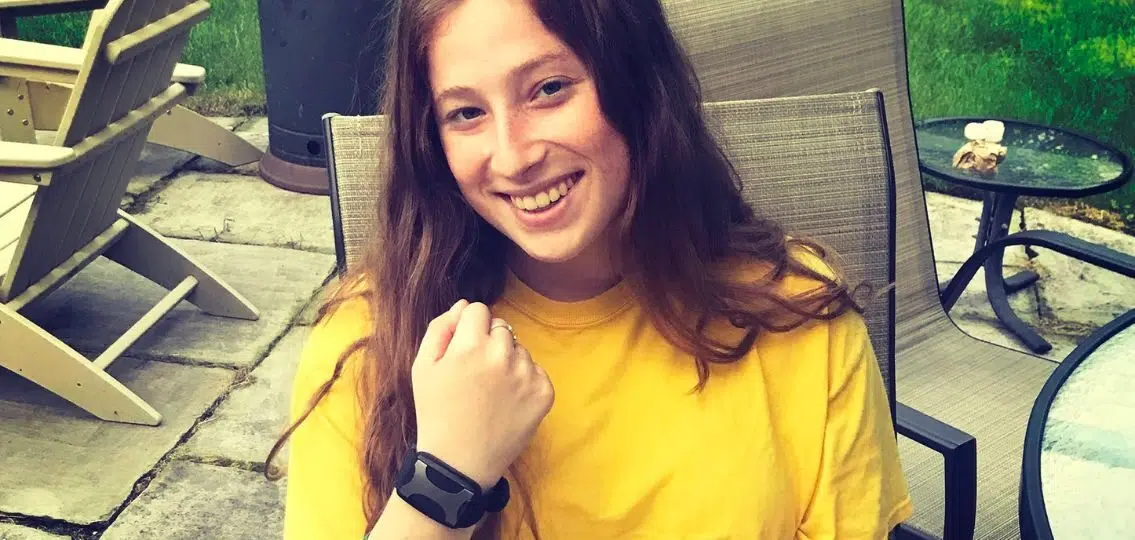Recently I spoke with David Rabin, a Ph.D. Neuroscientist, M.D. Psychiatrist, and co-inventor of the Apollo Neuro, a wearable device that improves your body’s resilience to stress, so you can relax, sleep, focus, recover, and feel better. I asked Dr. David about the connection between teens and sleep, stress, and mental health. Here’s what I learned.
The Importance of Sleep for Teens
Q: What is the correlation between sleep and mental wellness?
Dr. Rabin: Sleep is that part of our day where our minds and bodies can relax and allow ourselves to enter a recovery state. That’s required for us to function well.
When we are deprived of high-quality sleep, we don’t perform well the next day. We then get frustrated and have more difficulty sleeping at night. As a result, we’ll underperform again and then get frustrated with ourselves again. And then we’ll have poor sleep because we’re thinking about how we should have done better, and we should have worked harder.
We end up repeating the cycle until eventually, our bodies say, “Wait a minute, you’re under threat all the time!” This causes our bodies to go into a chronic stress state that can result in burnout. If we don’t tackle sleep first, then it’s hard to work on the rest of the healing. Sleep is the foundation ensuring we get the recovery we need so that our brains and our bodies can function.
Q: Do teens experience stress differently than adults?
Dr. Rabin: One of the biggest things teenagers struggle with is stress. They have to do certain things at certain times and don’t have a lot of control over their lives. The body can interpret that feeling of lack of control as a threat. The combination of all these perceived and actual threats makes it very hard to enter deep sleep.
| [adrotate banner=”257″] |
What helps us to achieve deeper sleep is creating an environment and doing what we can in our environment to remind ourselves that we are in control and, thus, safe. We can reinforce that feeling over time and eventually it will lead to deeper, more restful sleep.
Sleep and Anxiety in Teens
Q: How has the pandemic increased anxiety in teens?
Dr. Rabin: It goes back to control. Anxiety is a signal. It’s not a bad thing; it’s neutral. It’s a signal that something is drawing our attention. If we ignore it, anxiety grows because it needs to be addressed and acknowledged so that it can move on. Anxiety comes from the amount of time that we spend paying attention to things we cannot control.
Acknowledging this allows us to focus on things we can control. Breath, movement, and attention are three things that help give us control over anxiety. The more in control you feel, the less anxiety you experience.
Q: Let’s talk about the Apollo Neuro wearable and its impact on the body.
Dr. Rabin: Apollo was released in January of 2020, and teens and young people have really benefited from it. It works by delivering very gentle vibrations, or sound waves, to the skin. Those vibrations tell the touch receptors similar information to what they get when we are touched gently by a loved one or when we’re holding a pet. It tells our brain that we’re safe.
Our brains are hardwired to receive this positive touch information from the skin to the brain. Because of the pandemic, people aren’t receiving enough soothing touch, which has made mental health much worse. When we don’t get that, we seek it from outside. We’ve replicated this soothing touch with Apollo.
Q: Is the Apollo habit forming? Or can you get to a point where you stop using it and retain the benefits?
Dr. Rabin: My specialty is in addiction psychiatry. Our goal was not to make addictive technology. We wanted to give people the sensation of feeling good so that they could learn how to get that feeling on their own, to help them build new habits.
Over time, people become more sensitive to the vibration. When people begin using it, they use it all the time, sometimes all day, every day. After six to nine months, people use it less. They feel the effects more quickly which last longer afterwards, so they don’t need to keep using Apollo as often.
If you would like to get in on more sleep and less stress for you or your teen, go to Apolloneuro.com/yourteen to receive 10% off.
